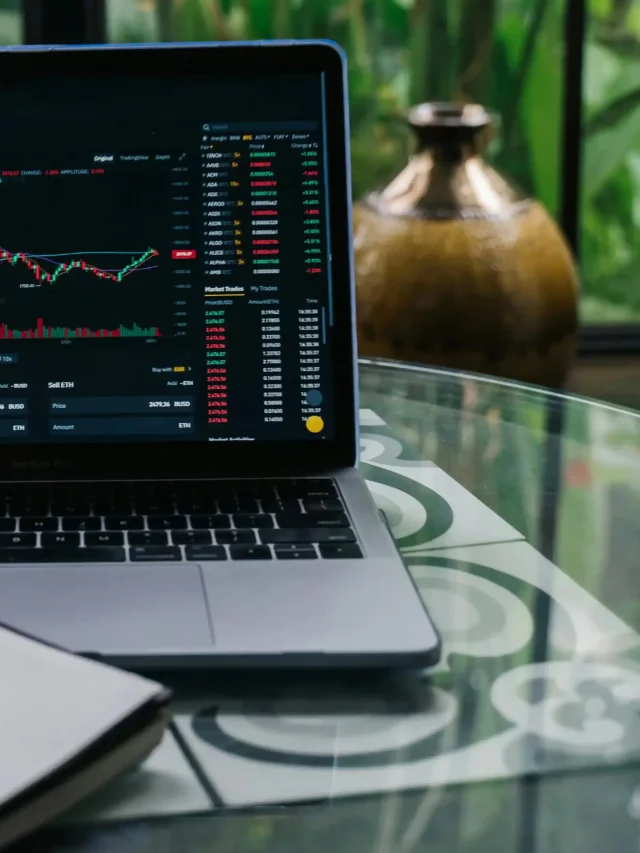The world of cryptocurrency can seem daunting to newbies, but that doesn’t mean it should be. To get started investing in this exciting field, all you need is a cryptocurrency wallet.
Although cryptocurrencies may seem like a risky and volatile investment strategy, people still feel that there is a lot of potential and interest in it. Cryptocurrencies also often decentralize or anonymize transactions, making them feel more secure. They’ve also put measures in place to ensure everything is checked and validated on public, tamper-resistant blockchains. These measures don’t make cryptocurrencies risk-free though. Technology is advancing at breakneck speeds and there are all sorts of scams waiting around for unsuspecting users to fall into. Phishing, fake wallets, fake cryptocurrencies – you name it. Even the biggest corporations are not immune.
Cryptocurrency Wallet
You need a place to store your cryptocurrency, but before you get it you must educate yourself on the risks and benefits. One of the many cryptocurrency-related terms available is a wallet. A cryptocurrency wallet is a software application to store private and public keys and interact with different chains so as to enable people to send or receive digital currencies and monitor their balance. Bitcoin and other cryptocurrencies are designed to be powerful tools towards a future of financial independence. If you want to use Bitcoin or any other cryptocurrency, you will need a wallet.
Also Read: What are the odds Shiba Inu and Dogecoin Outperform Bitcoin in 2022?
How Do Wallets Work?
When a person sends you any type of digital currency, they are essentially signing off the coins to your address. To unlock those funds, the private key stored on your wallet must match the public address assigned to that currency.
If your public and private keys match, the balance in your digital wallet will increase while the amount you send will decrease. However, there is no actual exchange of real coins. All transactions i.e. assets transfers are stored in transaction records on Ethereum’s blockchain and marked up in your cryptocurrency wallet balance.
When deciding on a wallet, there are several factors to consider. Let’s take a look at some important aspects:
The key to choosing just the right wallet for your cryptocurrency is that, in most cases, they all have different features which you will need to weigh up based on what’s most important to you. For example, convenience can come at the cost of security and additional features may come with a higher learning curve. What are the important features in a wallet that you want in particular? A few of the features below might help you find your perfect fit.
Cost: Is it free? What are the disadvantages of using this wallet?
Security: Does the company have a good security record in the past?
Mobility: Yes, you can keep it at all times because it is easy to carry. And yes, you can access it whenever and wherever you need.
User-friendliness: Some wallets can store more than one cryptocurrency, but that varies per wallet. This design is intuitive and creates a smoother experience for managing your funds.
Convenience: You can make fast purchases when necessary.
When picking a wallet, you’ll want to find the one that includes the most of these characteristics.
Different Cryptocurrency Wallets
There are a number of different types of wallets you can use for cryptocurrency, they include desktop wallets, hardware wallets and paper wallets. Traditional cryptocurrency exchanges usually provide their own internal crypto wallet.
Wallets can be split up into four different types: hardware wallets, paper wallets, desktop wallets and online/web-based wallets:
Web Wallet – Web wallets can be accessed through a web browser and store the user’s wallet on a third-party server. This provides extra security because it is not connected to an individual computer. Some of these services use client-side code that runs on your browser, meaning that the cryptocurrency keys are controlled by the user. Crypto storage is a difficult subject. Some use third-party systems because they are intuitive, but this trade-off means you won’t have the keys to your funds which could be a concern if security is important to you.
Mobile Wallet – A mobile wallet is the most common type of modern-day wallet. Quite a few people choose it because it’s easy to use and accessible from their phones, such as Apple iOS and Android. If you’re fairly new to this kind of financial management, then picking up a mobile wallet might be just what you need. Many AI mobile wallets are designed for simplicity & ease-of-use but there are also mobile wallets that have most of the features you would find in desktop wallets.
Desktop Wallet – In the old days, a desktop wallet was the go-to option for storing any cryptocurrency. These wallets offer many features and give you more control over your funds. Running on Windows and Mac, which are general-use operating systems, has certain disadvantages such as the systems being insecure and poorly configured.
Paper Wallet – “Cryptocurrency keys can also be printed for long-term storage. These are known as paper wallets even though other materials (wood, metal, etc.) can be used.” Paper wallets are a low-tech way to store cryptocurrency. As they are offline, these have become known as cold storage.
Hardware Wallet – Hardware wallets securely store your Bitcoin on specialized hardware. They operate via USB with a desktop browser or wirelessly through NFC with a mobile device. By using these wallets, you can avoid potential cryptocurrency-related security risks. They are designed to securely store significant amounts of cryptocurrencies
Are Digital Wallets Safe?
What is your version and what format you have chosen? That can affect how easy it is to use the software.
The safest storage option is a hardware wallet; this way your account can’t be hacked, your keys can’t be stolen and your cryptocurrency stored there won’t go missing. This is a good point and it’s not the best idea to store your cryptocurrency on an exchange account or somewhere that you can’t see your private keys. Some top recommended wallets for this would be:
Every online wallet comes with its own pros and cons. For example, if you decide to use a third-party service, your keys will be controlled by the provider. This means it doesn’t take much technical knowledge to set up and is rather convenient, but it’s also the least secure option and requires more trust than with a hardware or paper wallet.
A common approach to crypto investment is the hybrid one – you hold on to your core holdings but also have a spending balance for short-term crypto. Chose between the three different levels of integration based on your marketing strategy and technical requirements.
No matter what option you choose, make sure to back up your files and keep your backup location a secret.






